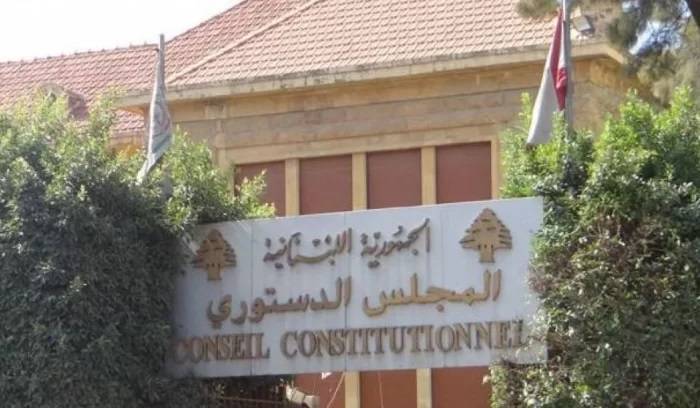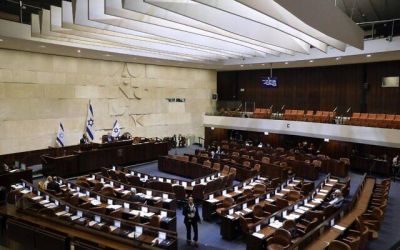
The seat of the Constitutional Council in Hadeth. (Credit: NNA)
BEIRUT — On Thursday, the Constitutional Council (CC) issued a decision to completely suspend eight articles of the 2024 budget adopted by Parliament at the end of January. It also partially suspended other articles in the budget, the state-run National News Agency (NNA) reported on Friday.
The decision follows several appeals lodged by numerous deputies and parliamentary groups. The appeals were accepted and then examined by the CC. Some of the articles had already been the subject of additional rulings and were temporarily suspended a month ago — pending the final verdict.
The eight articles suspended in their entirety are: 40, 41, 56, 83, 87, 92, 94 and 95.
Here is what each article pertains to:
• Articles 40 and 41 concern the mokhtar stamp and the declaration of profits. The basic value of a mokhtar's stamp had been set by Parliament at 50,000 Lebanese pounds (previously LL1,000).
• Article 56 on the management of private State property has also been suspended. It stipulates that such property is to be leased on the basis of calls for tender drawn up by the Minister of Finance and a relevant minister.
• Article 83 concerns tax increases on imported tobacco and electronic cigarettes. It provided for a tax of LL11,500 on packs of 20 cigarettes or refills of electronic cigarettes, and a tax of LL115,000 on a kilo of tobacco for hookah.
• Article 87 deals with arrangements relating to unpaid income tax and Value Added Tax (VAT). It stipulates that taxpayers may enter into an arrangement concerning taxes which they have contested before a jurisdictional body, without having recieved a final verdict. This article was targeted on the basis of an appeal which stipulated that Parliament had interfered in matters relating to justice and had therefore infringed on the principle of the separation of powers.
• Article 92 concerns fees at the Lebanese University, the country's only public higher education institution. It provided for the LU Council to have the necessary prerogatives to determine all the fees imposed on students, including annual registration fees, on condition that decisions were submitted to the Ministers of Education and Finance.
• Article 94 imposed a 10 percent tax on amounts over $10,000 obtained by companies that had taken advantage of subsidies granted by the Banque du Liban (BDL) to cover the exchange rate differential with the dollar. It set up a process for exchanging information between the Ministry of Finance and the National Social Security Fund, to check whether the declarations made by employers are in fact consistent with the reality of the income they pay to their employees.
• Article 95 concerned the regulatory laws of the last thirty years, as well as audited accounts. The government had to provide the latter within one year of the budget coming into force.
Other articles have been suspended or modified only in part. Here are the details regards those:
• In Article 7, which deals with external donations to public institutions, an expression "with the exception of municipalities and unions of municipalities" has been removed.
• In article 10, the second paragraph is deleted. Article 10 prohibits the Executive from using advances from the Treasury without complying with the Public Accounting Act.
• In article 69, a reference to the first paragraph has been deleted. This article concerns an 80 percent exemption from customs duties and a 70 percent exemption from registration fees for environmentally-harmful hybrid and electric vehicles and machinery imported from 1/1/2022. The words "which have been imported within five years of the application of this law" and "which have been imported since January 1, 2022 and which must be imported within five years" are deleted.
• In article 86, the words "by December 31, 2026" have been deleted. Article 86 concerns a reduction in taxes on the sale of real estate. It provides that "exceptionally, and for a period ending on 31/12/2026, these taxes are reduced to one percent."
• In article 93, a reference is deleted. It concerns a 17 percent tax on gains in excess of $15,000 made on the Sayrafa platform, set up by the Banque du Liban. The deletion reads: "This tax is one of the charges that can be reduced, depending on the profits made by the taxpayer."
• In articles 15, 18 and 45, a clarification is made to the phrase "determine the effective exchange rate by the BDL." This means that it is up to the BDL to indicate the average rate in force on the market so that it can be adopted for the calculation of taxes and charges.
